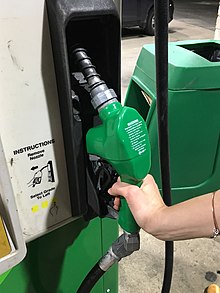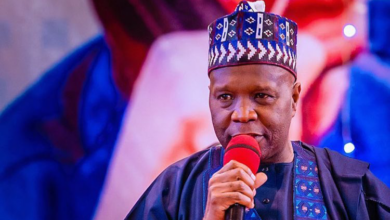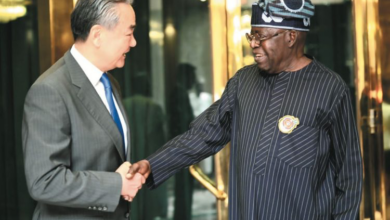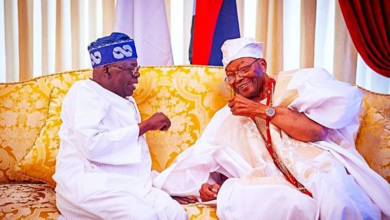‘Nigerians pay N47.6b in four months for petrol ‘subsidy’

• Govt fails to keep uniform pricing despite fund
• Pressure on govt to scrap equalisation fund
• Marketers kick
Government, in March this year, announced total deregulation of petrol across the country, but Nigerians still pay average of N11.9 billion every month to ensure the uniform price of fuel across the country.
Following forced removal of subsidy in the last four months, a total of N47.7 billion was paid by consumers, in what stakeholders likened to “forcing payment from Nigerians to ensure prices of Coke, Maggi and salt remain the same in all parts of the country.”
The payment was generated through the Petroleum Equalisation Fund (PEF) management board, between March and June this year when the Federal Government announced the deregulation of the downstream sector of the nation’s oil industry.
Minister of State for Petroleum Resources, Timipre Sylva, had insisted that the government would no longer subsidise Premium Motor Spirit (PMS), because the sector had been deregulated.
But against what should obtain under a deregulated regime, the Federal Government charged an average N7.51 on every litre of petrol that citizens buy to keep PEF in operation amid criticisms. But contrary to the purpose of the ‘pump price tax,’ per litre cost of the product failed to become uniform. Nigerians who live between 100km to 450km away from depots pay above pump price due to transport cost.
The Nigerian National Petroleum Corporation (NNPC) had stated that about 52 million litres of petrol was consumed daily in Nigeria, bringing the figure from March to June to about 6.4 billion litres.
So, while the official pump price of petrol was N121.50 per litre in June, data provided by the National Bureau of Statistics (NBS) revealed that the country was unable to keep to uniform price as petrol was sold in Gombe for N139.33; Adamawa, N138.00; and Taraba N135.50.The development defeated the reasons for setting up PEF. NBS disclosed that the products sold lower in states like Kwara (N123.86), Ogun (N124.38) and Oyo (N124.39).
While bridging cost hovers between N6 and N10, the monthly pricing template released by Petroleum Products Pricing Regulatory Agency (PPPRA), dated June 30, showed that Nigerians were charged N7.51 as additional cost from the core variables that determined how much should be paid on a litre of petrol.
CREATED by Decree 9 of 1975 and amended by Decree 32 of 1989, the fund was charged with the primary responsibility of reimbursing petroleum marketing companies for any losses suffered by them, solely and exclusively, as a result of sale of petroleum products at uniform prices throughout the nation.
As justified by the then government, bridging of transportation cost was introduced as a temporary measure, when turnaround maintenance (TAM) of the nation’s refineries was to be conducted. However, the scheme remained for decades as the state of the refineries has worsened.
PEF has stated that, while the initial projection was to have maximum of 10 per cent of total petroleum products bridged, while the remaining portion would be pumped through pipelines, the transportation scheme has consistently increased to about 40 per cent.
Besides, with poor state of refineries and ports in the Southeast and South-south, PEF wrote on its website that products were bridged from Lagos to the areas to address availability problems from the refineries in Port Harcourt and Warri.
Like other obsolete laws in the sector, fresh agitations have greeted the scheme, since government embarked on deregulation as marketers of the product and other stakeholders have insisted that the fund is a drainpipe and not needed in a market expected to survive on realities.
Coming at a time when labour unions are also warming up for showdown should the price of the product continue to increase, some industry players noted that removing the bridging cost would not only reduce the pump but allow investment into the different regions of the country.
A lawyer, Ameh Madaki, who specialises in energy matters, sees the scheme as a wasteful subsidy that achieves absolutely nothing for the downstream sector.
“Whatever informed its setting up originally is no longer relevant to the dictates of today’s economics and it deserves to be scrapped or merged with the Petroleum Products Pricing and Regulatory Agency (PPPRA), which itself needs to be restructured and re-engineered for greater relevance and efficiency,” Madaki said.
He said PEF would remain a corrupt drainpipe with no value to the Nigerian economy, arguing that since nobody paid transporters of food products to bridge the prices of food items for them to remain stable throughout the country, doing such for petrol remained senseless.
Former President, Nigerian Association for Energy Economists (NAEE), Prof. Wunmi Iledare, stated that the country could not pretend to deregulate and set the price at the same time, nor keep an equalisation agency.
“This is what we refer to as transfer payment syndrome. The way out is complex but doable.”Another expert with the Facility for Oil Sector Transparency and Reform (FOSTER), Michael Faniran, says the much-talked about deregulation was not holistic
“We are still operating a semi-deregulated market but even at that, the current banded pricing regime allows marketers to sell at different prices at different geographical areas based on their cost.
Under the new deregulation policy, PPPRA, central bank of Nigeria (CBN), NNPC, Budget Office, Federal Ministries of Petroleum Resources and Finance would determine the prices of petroleum products.
According to a document exclusively obtained in the presidency yesterday, the Federal Government said under the new guidelines for the deregulation of the downstream sector in its bid to incentivize the sector, it has set up a Price Review Committee (PRC), whose duty is to meet once a month to review prevailing price of petrol for each month.
The PRC began work in early April this year after the Federal Government pronounced the commencement of deregulation of the downstream sector on March 19, 2020.
Executive Secretary of PPPRA, Abdulkadir Saidu said “the agency no longer fixes prices but rather provides a guiding price band within which the operators are expected to operate. This takes into account prevailing market conditions by monitoring petroleum products prices daily, using the average price of the previous month and other components like foreign exchange rates to determine prices for the following month, while ensuring reasonable returns to Oil Marketing Companies (OMCs).
But the Independent Petroleum Marketers Association of Nigeria (IPMAN), yesterday, said crisis was looming in the sub sector over pressure on government to scrap the PEF.The IPMAN position was contained in a statement issued, in Jos the Pl;ateu State capital, by its National Secretary Alhaji Danladi Garba Pasali.
Culled from t.guardian.ng





